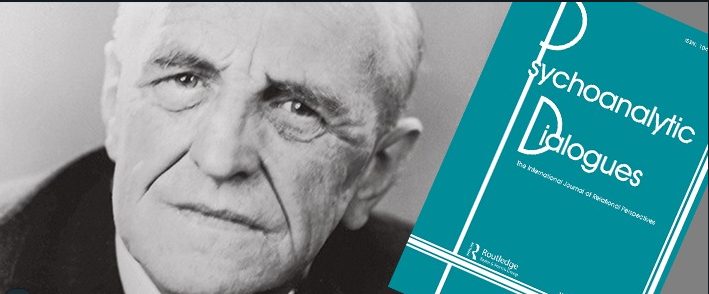| The latest issue of Psychoanalytic Dialogues, has just been published. The editors Introduction refers to the US Presidential election the feeling of breakdown that radiates darkly from the Trump Trump campaign and the optimism that succors on the Harris Walz campaign. Editors Jack Foehl, Amy Schwartz Cooney, Stephen Hartman, and Lauren Levine, have chosen Donald Winnicott’s seminal 1974 paper, in which he theorized the fear of breakdown – a terrible dread that is experienced as a consequence of trauma in the mother. The papers in this issue bring this concept to bear in different ways. Anthony Bass opens the issue with It Takes Two to Know One: Mutual Relations at the Heart of Therapeutic Action, charts the development of his thinking as one of the founding voices in the development of Relational Psychoanalysis. Then follows the series of essays on Fear of Breakdown. First is Anne Alvarez’s The Experience of Breakdown, which explores the personal dimensions of breakdowns in therapy. Daniel Butler’s Blackout looks at substance induced blackouts as breakdown. Ken Corbett’s The Wish for Breakdown, intriguingly argues that some patients unconsciously desire breakdowns as a transformative experience. Jill Gentile’s Fear of Breakdown and Object Usage further investigates the role of maternal influence in overcoming destructiveness. The issue also takes a political turn with Lama Khouri’s Breakdown and Refusal: A Palestinian’s Reflection on Loss and Liberation, offering a reflection on trauma within the Palestinian-Israeli conflict. Other essays, like Joyce Slochower’s Inside Out and Upside Down: Winnicott’s Fear of Breakdown, revisit key psychoanalytic theorists to interpret breakdowns through the lens of influential figures like Donald Winnicott. There are several other essay in the series. A feature of this journal is that it foregrounds dialogue, inviting responses to papers that are published alongside the paper. Lisa Koshkarian and Chris Larralde’s article Kinship Object: A Creation Engendered from the Bewilderment of a Pillaged World ties psychoanalysis to environmental concerns. Shifa Haq and Rachel Sopher engage with the concept of “kinship object” in response. Smadar Steinbock’s article, “A Woman Who Found She Needed a Session of Indefinite Length”: A Look at Chapter Four of Winnicott’s Playing and Reality Through the Prism of its Modalities of Temporality, reflects on the temporality of therapeutic sessions. Steven Cooper and Peter Goldberg, discuss the dynamic between time, healing, and psychoanalytic theory. Psychoanalytic Dialogues has generously made the Introduction free to read, and also two articles: Rina Lazar’s Fear of Breakdown – the Dissolution of Fear (free to read), and Sally Swartz The Internal Objects of Apartheid (free to read). This issue brings together diverse perspectives on breakdowns—ranging from personal crises to societal collapse—while interweaving these with theoretical and therapeutic insights from across the psychoanalytic tradition. Read the full issue here. | 